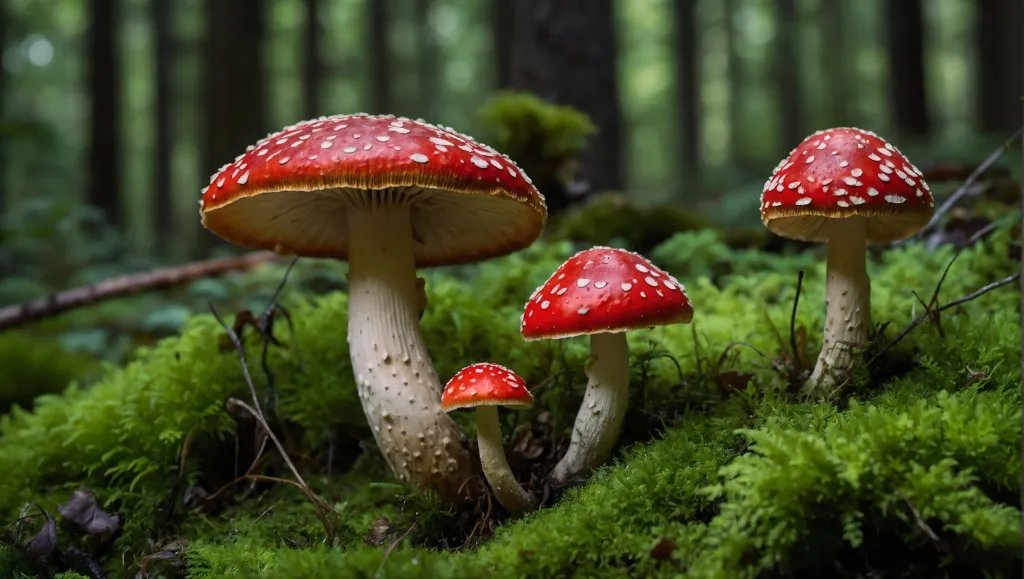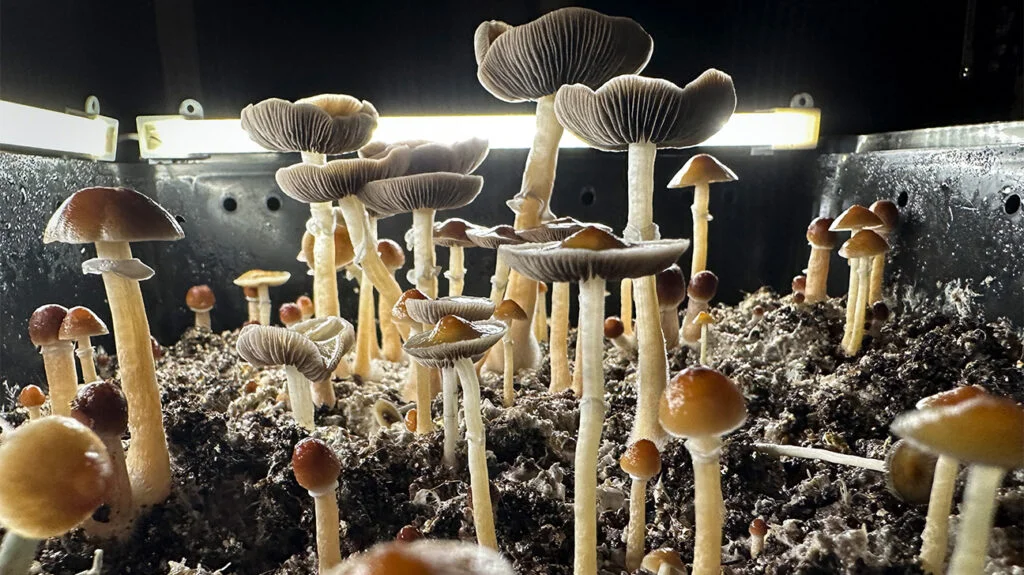Introduction
In recent years, microdosing mushrooms has gained attention as a potential tool for boosting mental clarity, mood, and creativity. Instead of consuming a full psychedelic dose, microdosing involves taking a very small, sub-perceptual amount of psilocybin mushrooms. The goal isn’t to “trip” but to experience subtle shifts that might enhance daily life. In this review, we’ll explore what people are reporting about microdosing, its benefits, possible drawbacks, and how it affects mood and focus.
What Is Microdosing Mushrooms?
Microdosing typically refers to consuming about one-tenth to one-twentieth of a standard recreational dose of psilocybin mushrooms. This usually translates to roughly 0.1 to 0.3 grams of dried mushrooms, depending on the strain and the individual’s sensitivity. At this dosage, the psychoactive compounds are present but not strong enough to trigger vivid hallucinations or the intense visual and sensory shifts associated with a full psychedelic experience. Instead, users often describe the effects as subtle yet noticeable—a gentle lift in mood, a calmer state of mind, and an increased ability to focus.
Many also report feeling more present in their daily activities, with heightened creativity and a smoother flow of thoughts. Rather than overwhelming the senses, microdosing aims to provide a quiet enhancement that blends seamlessly into everyday life, making it an appealing option for those curious about psilocybin’s potential benefits without the intensity of a full trip.
Reported Benefits of Microdosing

1. Subtle Mood Enhancement
One of the most common themes in microdosing reviews is a lighter, more positive outlook. Users often describe feeling less weighed down by stress and more open to positive experiences. This isn’t the euphoric high of a full trip—it’s more like a gentle emotional reset.
2. Improved Focus and Creativity
Many people microdose to enhance productivity. Reviews often mention an ability to stay present with tasks, tackle creative projects with more flow, and even see problems from new perspectives. It’s why microdosing has become particularly popular among professionals, artists, and entrepreneurs.
3. Reduced Anxiety and Stress
Some users find that microdosing helps them manage social anxiety or everyday stress. The calming effect is subtle but noticeable, allowing them to feel more at ease in conversations and daily interactions.
The Experience: What It Feels Like
Most reviewers describe the experience as very gentle—almost unnoticeable at times. On a microdosing day, you might feel:
- A slightly brighter mood.
- More motivation to complete tasks.
- A sense of connection with your surroundings.
- Greater emotional awareness.
However, not everyone experiences the same effects. Some people notice little to no difference, while others may feel more sensitive to emotional fluctuations.
Possible Drawbacks of Microdosing
While many reviews are positive, it’s important to note potential downsides:
- Tolerance Build-Up: Using mushrooms too often can reduce their effectiveness, which is why many follow a schedule (e.g., one day on, two days off).
- Anxiety in Sensitive Users: For a small percentage of people, even a microdose can heighten anxiety or restlessness.
- Uncertainty in Dosage: Since mushroom potency varies by strain and batch, it can be tricky to find the perfect microdose without some trial and error.
Science and Research Behind Microdosing
Early research on psilocybin has shown promising results, particularly in areas like mental health, emotional regulation, and cognitive flexibility. Clinical studies with higher, therapeutic doses have already demonstrated potential benefits for conditions such as depression, anxiety, and post-traumatic stress disorder. However, when it comes to microdosing specifically, the scientific community is still in the early stages of investigation. Much of what we know today comes from anecdotal reports, online forums, and self-reported surveys where individuals share their personal experiences with improved mood, reduced stress, and heightened creativity.
While these accounts are encouraging, researchers caution that personal stories alone are not enough to establish medical credibility. Some small-scale studies and preliminary surveys suggest that microdosing may help with mood stabilization, focus, and problem-solving, but the results are far from conclusive. One of the challenges is that placebo effects can play a strong role—people who expect positive results from microdosing may naturally report improvements. To truly understand its effects, more controlled, double-blind clinical trials are needed. Until then, microdosing remains an intriguing practice backed by growing interest, but its long-term safety and efficacy are yet to be fully confirmed.
Should You Try Microdosing?
If you’re curious about microdosing mushrooms, it’s important to approach the practice with intention and caution rather than treating it casually. The first step is to start with a very low dose and pay close attention to how your body and mind respond. Everyone’s sensitivity to psilocybin varies, so what feels like a microdose for one person could be overwhelming for another. Keeping a journal of your experiences—tracking mood, focus, energy, and emotional changes—can help you notice subtle patterns over time.
Equally important is following a structured schedule. Many experienced users recommend protocols such as taking a microdose every third day or using a “one day on, two days off” rhythm. This helps prevent tolerance from building up and allows you to better evaluate whether the benefits you’re experiencing are consistent and sustainable.
Before you begin, make sure to research the legal status of psilocybin in your region, since laws vary widely across countries and even states or provinces. Legality aside, you should also consider your personal mental health history. For individuals with certain psychiatric conditions, such as a predisposition to psychosis or severe anxiety, even small amounts of psilocybin may not be advisable.
Finally, it’s worth remembering that microdosing isn’t a magic fix for life’s challenges. It’s best viewed as a potential supplement to an already balanced lifestyle that includes healthy habits like good sleep, nutrition, and stress management. For many, the practice provides gentle yet meaningful shifts—brighter moods, improved focus, and greater creativity—that, over time, can contribute to a more positive and resilient outlook on life.
Also Read: Magic Mushrooms and Mental Health: Can Psychedelics Help with Depression and Anxiety?
Final Thoughts
Microdosing mushrooms isn’t about escaping reality—it’s about enhancing it in small, meaningful ways. Reviews from users highlight the potential for brighter moods, sharper focus, and greater creativity, though experiences vary. While science is still catching up, the growing body of personal stories suggests that microdosing may offer gentle yet powerful support for those seeking balance in their daily lives.

